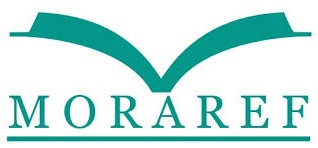Abidin, Z. (2020). Educational Management of Pesantren in Digital Era 4.0. Jurnal Pendidikan Agama Islam, 17(2), 203–216. https://doi.org/10.14421/jpai.2020.172-07
Ackfeldt, A. (2024). Teaching Islam in the RE classroom: a view from the edge. Journal of Beliefs and Values, 45(2), 208–219. https://doi.org/10.1080/13617672.2024.2312331
Aly, H., Byrne, K. A., & Knijnenburg, B. (2024). Perceived Trustworthiness of Human vs. AI Instructors in Digital Privacy Education for Older Adults. Companion Proceedings of the 29th International Conference on Intelligent User Interfaces, 107–112.
Ansyah, E. (2022). The Role of Digital Learning in Islamic Education: An Analysis of Acceptance Technology In Indonesia. Eurasian Journal of Educational Research, 2022(102), 21–38. https://doi.org/10.14689/ejer.2022.102.002
Armadan, A., Mubarok, S. Al, & Tengah, L. (2023). Peningkatan Kualitas Pendidikan Melalui Implementasi Manajemen Mutu. Attractive : Innovative Education Journal, 5(3), 129–139. https://attractivejournal.com/index.php/aj/article/view/841
Aslan, A., & Turgut, Y. E. (2024). Parental mediation in Turkey: The use of mobile devices in early childhood. E-Learning and Digital Media, 21(5), 444–461.
Astuti, M., Ismail, F., Fatimah, S., Puspita, W., & Herlina. (2024). The Relevance Of The Merdeka Curriculum In Improving The Quality Of Islamic Education In Indonesia. International Journal of Learning, Teaching and Educational Research, 23(6), 56–72. https://doi.org/10.26803/ijlter.23.6.3
Azizah, N., Nurdianzah, E., Wijaya, M. M., Azami, T., & Rohman, A. (2023). Religious Moderation in The Industrial Era 4.0: Deradicalization Through The Development of Intellectual Traditions at Fadhlul Fadhlan Islamic Boarding School Semarang. Jurnal Pendidikan Agama Islam, 20(2), 233–246. https://doi.org/10.14421/jpai.v20i2.7771
Chiu, T. K. F., Moorhouse, B. L., Chai, C. S., & Ismailov, M. (2024). Teacher support and student motivation to learn with Artificial Intelligence (AI) based chatbot. Interactive Learning Environments, 32(7), 3240–3256.
Cindya Elisa, Intan Rahmadani, Meliza, Davina Alifia Putri, Nanin Nuraini, M. Jumaidi Najib, & M. Syafiq Naufal. (2023). Dakwah Dan Komunikasi Di Era Society 5.0 Suatu Aspek Nilai Kehidupan:Aspek Teknologi Bagi Perkembangan Dakwah Dan Komunikasi Manusia. Proceeding Conference On Da’wah and Communication Studies, 2(1), 25–29. https://doi.org/10.61994/cdcs.v2i1.93
Ervianti, E., Sampelolo, R., & Pratama, M. P. (2023). The Influence of Digital Literacy on Student Learning. Klasikal: Journal of Education, Language Teaching and Science, 5(2), 358–365.
Hidayah, R., Wangid, M. N., Wuryandani, W., & Salimi, M. (2023). The Influence of Teacher Efficacy on Education Quality: A Meta-Analysis. International Journal of Educational Methodology, 9(2), 435–450. https://doi.org/10.12973/ijem.9.2.435
Ingsih, K., Astuti, S. D., Perdana, T. A., & Riyanto, F. (2022). The Role Of Digital Curriculum And Off-Campus Learning (MBKM) To Face Industry 4.0: Evidence In Indonesian Gen-Z Students. Journal of Positive School Psychology, 832-853.
Islamic, G., Supriyono, Ishaq, M., & Dayati, U. (2024). Character education through philosophical values in traditional Islamic boarding schools. Kasetsart Journal of Social Sciences, 45(1), 31–42. https://doi.org/10.34044/j.kjss.2024.45.1.04
Karman, Anwar, R., & Hakim, L. (2023). the Qur’Anic Learning Based on Islamic Eco-Theology At Pesantren. Jurnal Pendidikan Islam, 9(2), 169–186. https://doi.org/10.15575/jpi.v9i2.24933
Korkmaz, M., & Akçay, A. O. (2024). Determining digital literacy levels of primary school teachers. Journal of Learning and Teaching in Digital Age, 9(1), 1–16.
Kovalchuk, V. I., Maslich, S. V, & Movchan, L. H. (2023). Digitalization of vocational education under crisis conditions. Educational Technology Quarterly, 2023(1), 1–17.
Lin, X.-F., Zhou, Y., Shen, W., Luo, G., Xian, X., & Pang, B. (2024). Modeling the structural relationships among Chinese secondary school students’ computational thinking efficacy in learning AI, AI literacy, and approaches to learning AI. Education and Information Technologies, 29(5), 6189–6215.
Molina-Torres, M. P. (2024). Flipped Classroom to Teach Digital Skills during COVID-19. Journal of Technology and Science Education, 14(1), 158–168.
Musolin, M. H., Serour, R. O. H., Siregar, M., Hamid, S. A., Ismail, A., Huda, M., & Rohim, M. A. (2024). Developing Personalised Islamic Learning in Digital Age: Pedagogical and Technological Integration for Open Learning Resources (OLR). International Congress on Information and Communication Technology, 11–25.
Muthmainnah, S. (2024). Analysis Of Innovation Improvement Strategies For Islamic Religious Education Teachers In Facing The Era Society 5.0 At Islamic Boarding Schools. Educational Administration: Theory and Practice, 30(6), 1635–1641.
Niqresh, M. (2019). Digital Library and Intellectual Issues-Issues in Copyright and Intellectual Property. International Education Studies, 12(1), 114–127. https://doi.org/10.5539/ies.v12n1p114
Quraishi, T., ULUSI, H., MUHID, A., HAKIMI, M., & OLUSI, M. R. (2024). Empowering students through digital literacy: A case study of successful integration in a higher education curriculum. Journal of Digital Learning and Distance Education, 2(9), 667–681.
Raflesia, C., & Maharani, T. (2023). Pengaruh Literasi Budaya Berbasis Kearifan Lokal pada Pendidikan Anak Sekolah Dasar. Journal of Education and Instruction (JOEAI), 6(2), 364–368.
Rahmania, A. (2022). Pengelolaan Kelas Dalam Kegiatan Pembelajaran Bagi Siswa Sekolah Dasar Pada Masa Pandemi Covid-19. Jurnal Pendidikan Manajemen Perkantoran, 7(1), 30–43. https://doi.org/10.17509/jpm.v7i1.41732
Razali, R., Sundana, L., & Ramli, R. (2024). Curriculum Development in Higher Education in Light of Culture and Religiosity: A Case Study in Aceh of Indonesia. International Journal of Society, Culture and Language, 12(1), 39–55. https://doi.org/10.22034/ijscl.2023.2010108.3144
Rokhman, M., Usman, F., Usman, F., Kassim, A. B. H., & Muslihun. (2023). Consideration of Parents in Choosing Islamic Schools in the Digital Era. Nazhruna: Jurnal Pendidikan Islam, 6(3), 403–419. https://doi.org/10.31538/nzh.v6i3.4026
Rosyid, M. Z. (2021). Prestasi Belajar (edisi 2). In CV Literasi Nusantara Abadi.
Rukajat, A. (2018). Pendekatan penelitian kualitatif (Qualitative research approach).
Sadiah, D. (2022). Developing Pesantren Education Quality Thorugh Radicalism Prevention Program for Santri. Jurnal Pendidikan Islam, 8(1), 63–74. https://doi.org/10.15575/jpi.v8i1.17947
Saleha, L., Baharun, H., & Utami, W. T. (2022). Implementation of Digital Literacy in Indonesia Early Childhood Education. International Journal of Emerging Issues in Early Childhood Education, 4(1), 12–22. https://doi.org/10.31098/ijeiece.v4i1.894
Sari, M., Rachman, H., Astuti, N. J., Afgani, M. W., & Siroj, R. A. (2023). Explanatory Survey dalam Metode Penelitian Deskriptif Kuantitatif. Jurnal Pendidikan Sains Dan Komputer, 3(01), 10–16.
Sauri, S., Gunara, S., & Cipta, F. (2022). Establishing the identity of insan kamil generation through music learning activities in pesantren. Heliyon, 8(7). https://doi.org/10.1016/j.heliyon.2022.e09958
Suranto, M. A., & Gumiandari, S. (2024). Efektivitas Instagram Sebagai Media Pembelajaran Mufradat Berbasis Literasi Digital Pada Mahasiswa Pendidikan Bahasa Arab Iain Syekh Nurjati Cirebon. ADIBA: Journal Of Education, 4(3), 345–370.
Susanti, S. S., Nursafitri, L., Hamzah, I., Zunarti, R., Darmanto, Fitriyah, Asy’arie, B. F., & Sa’ad, M. S. (2024). Innovative Digital Media in Islamic Religious Education Learning. Jurnal Pendidikan Agama Islam, 21(1), 40–59. https://doi.org/10.14421/jpai.v21i1.7553
Suwanti, V., Suastika, I. K., Ferdiani, R. D., & Harianto, W. (2022). Analisis Dampak Implementasi Program Mbkm Kampus Mengajar Pada Persepsi Mahasiswa. JURNAL PAJAR (Pendidikan Dan Pengajaran), 6(3), 814. https://doi.org/10.33578/pjr.v6i3.8773
Winarni, E. W. (2021). Teori dan praktik penelitian kuantitatif, kualitatif. In PTK, R & D. Bumi Aksara.
Winoto, S. (2022). Improving curriculum and lecturers: Challenges to quality based-technology. Journal of Social Studies Education Research, 13(2), 221–242. https://www.scopus.com/inward/record.uri?partnerID=HzOxMe3b&scp=85133424990&origin=inward

 (Universitas Nurul Jadid)
(Universitas Nurul Jadid) 








.png)









